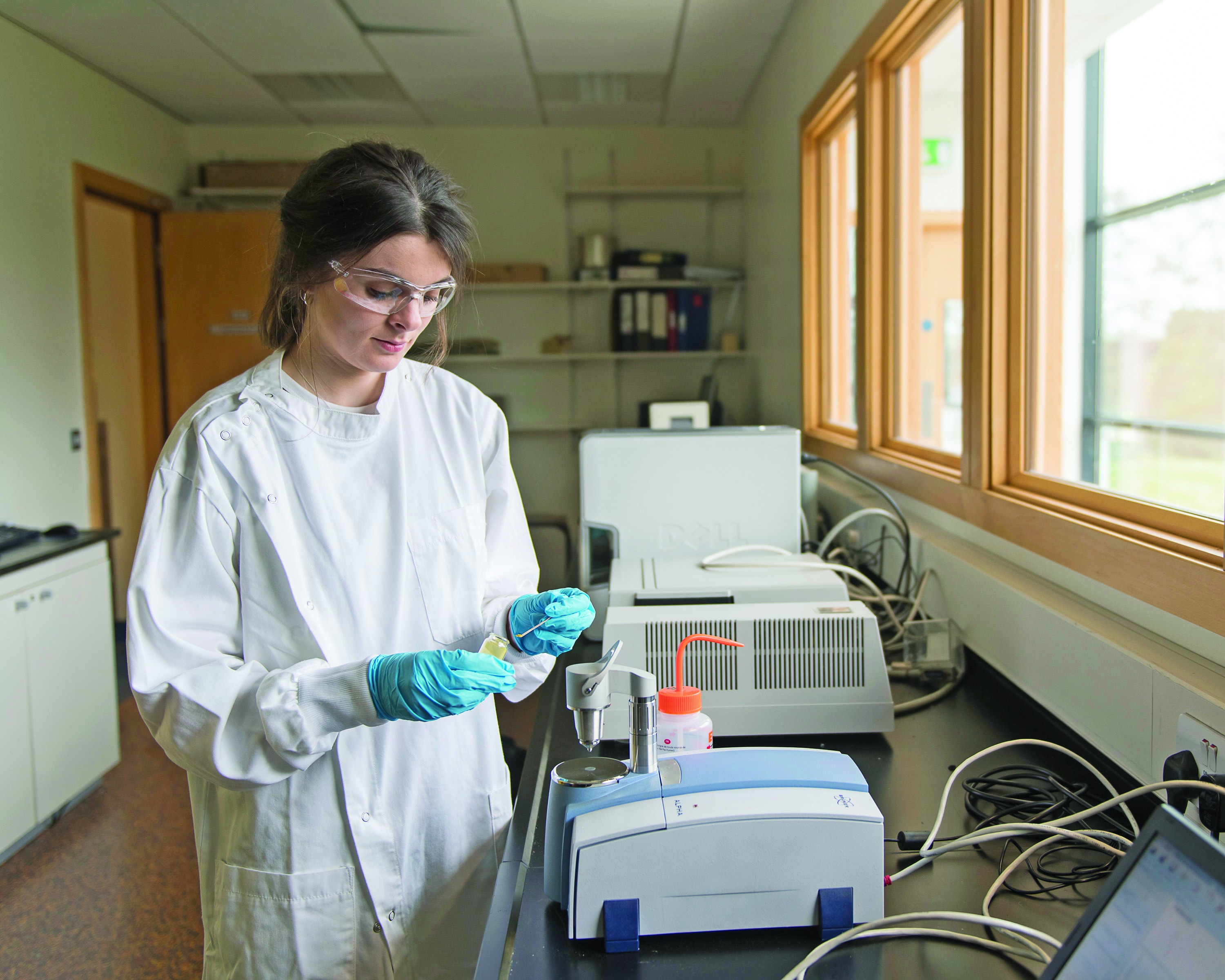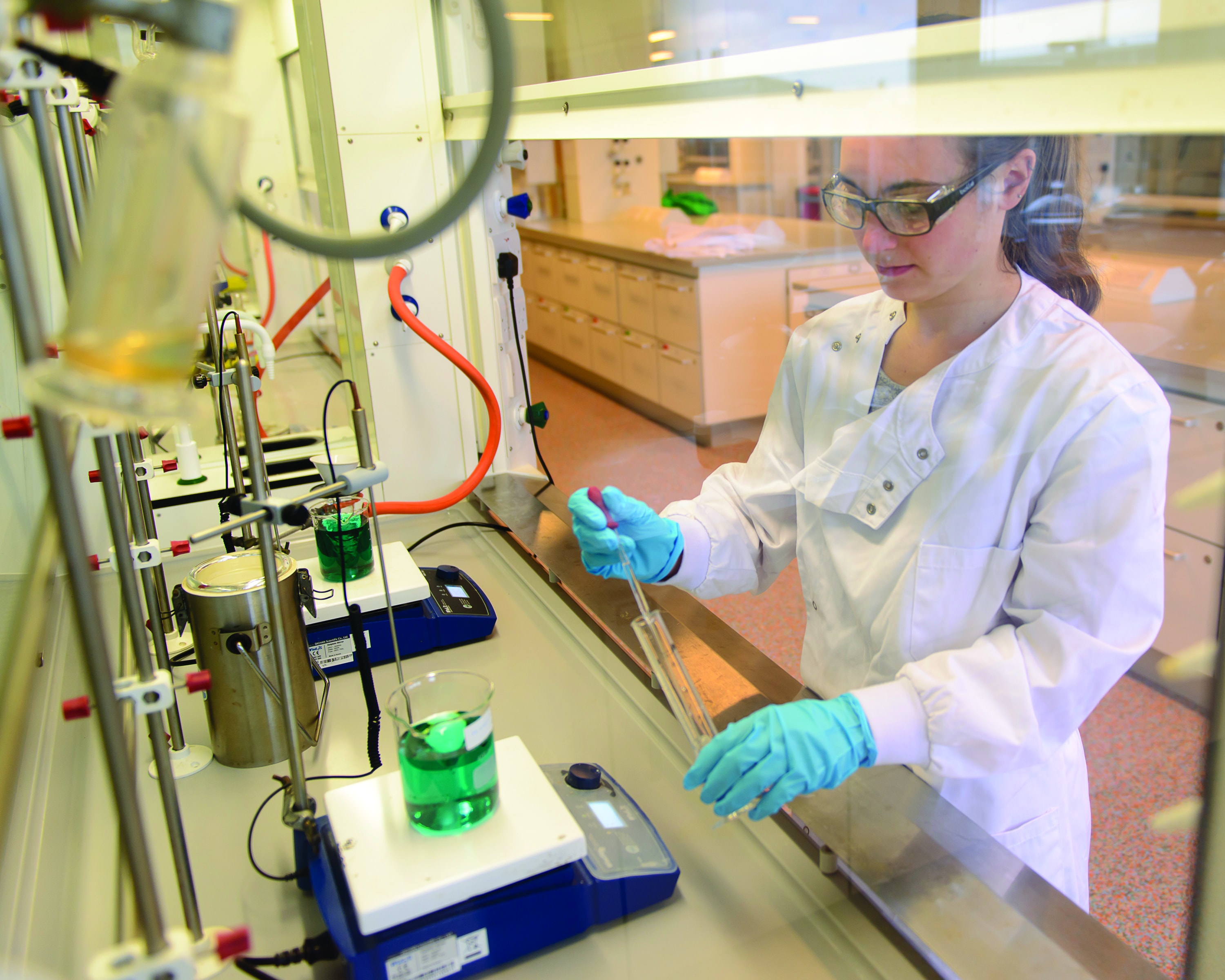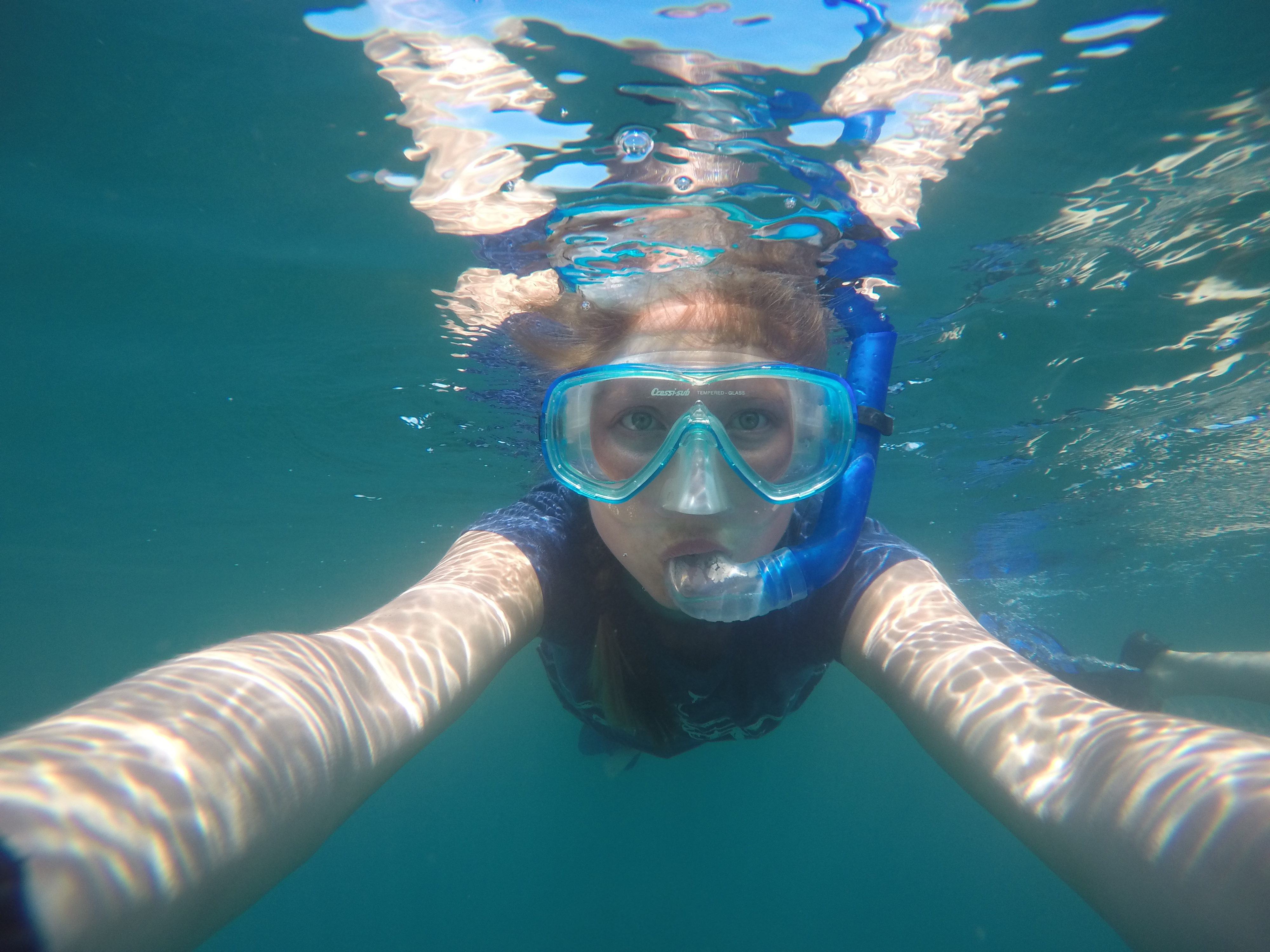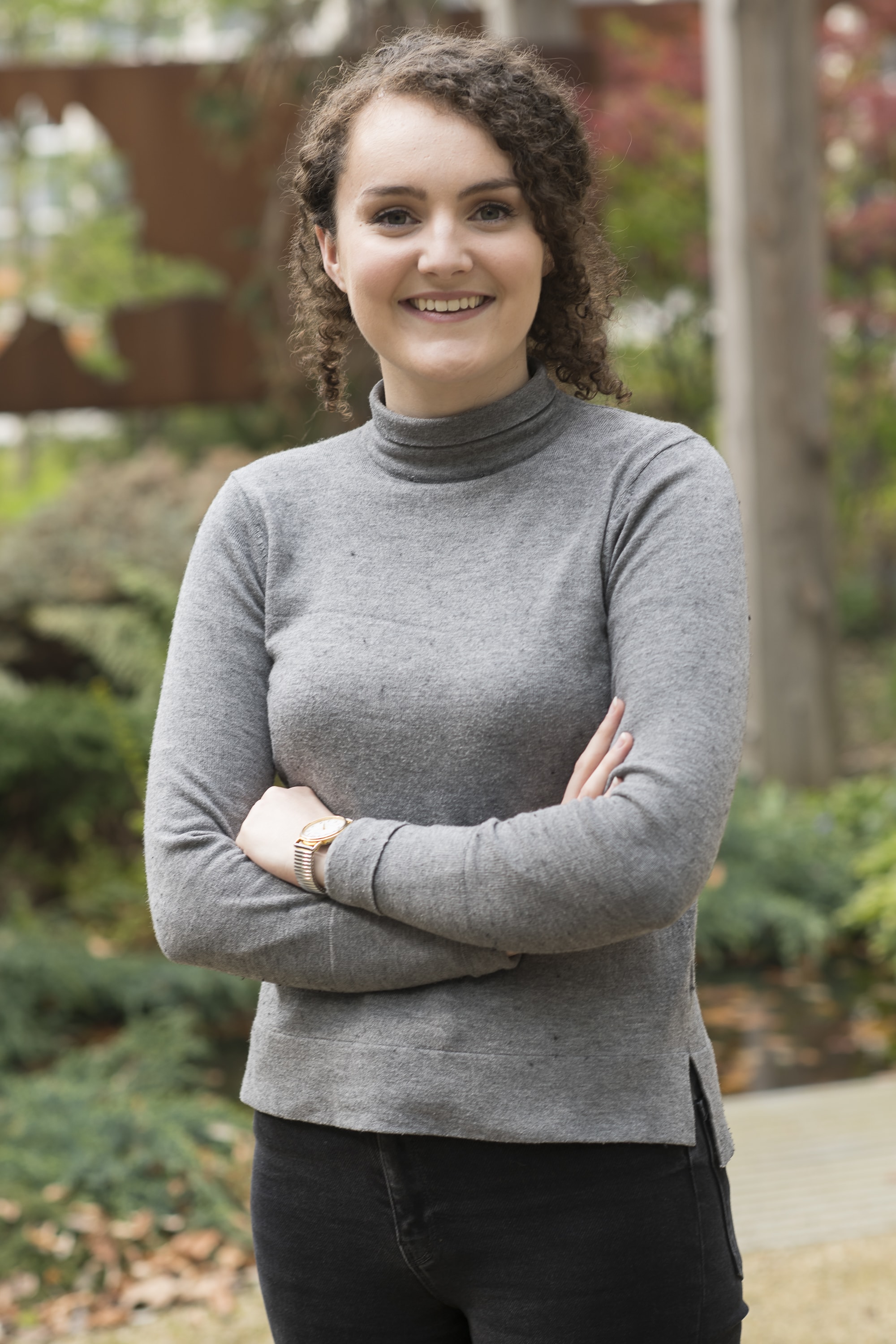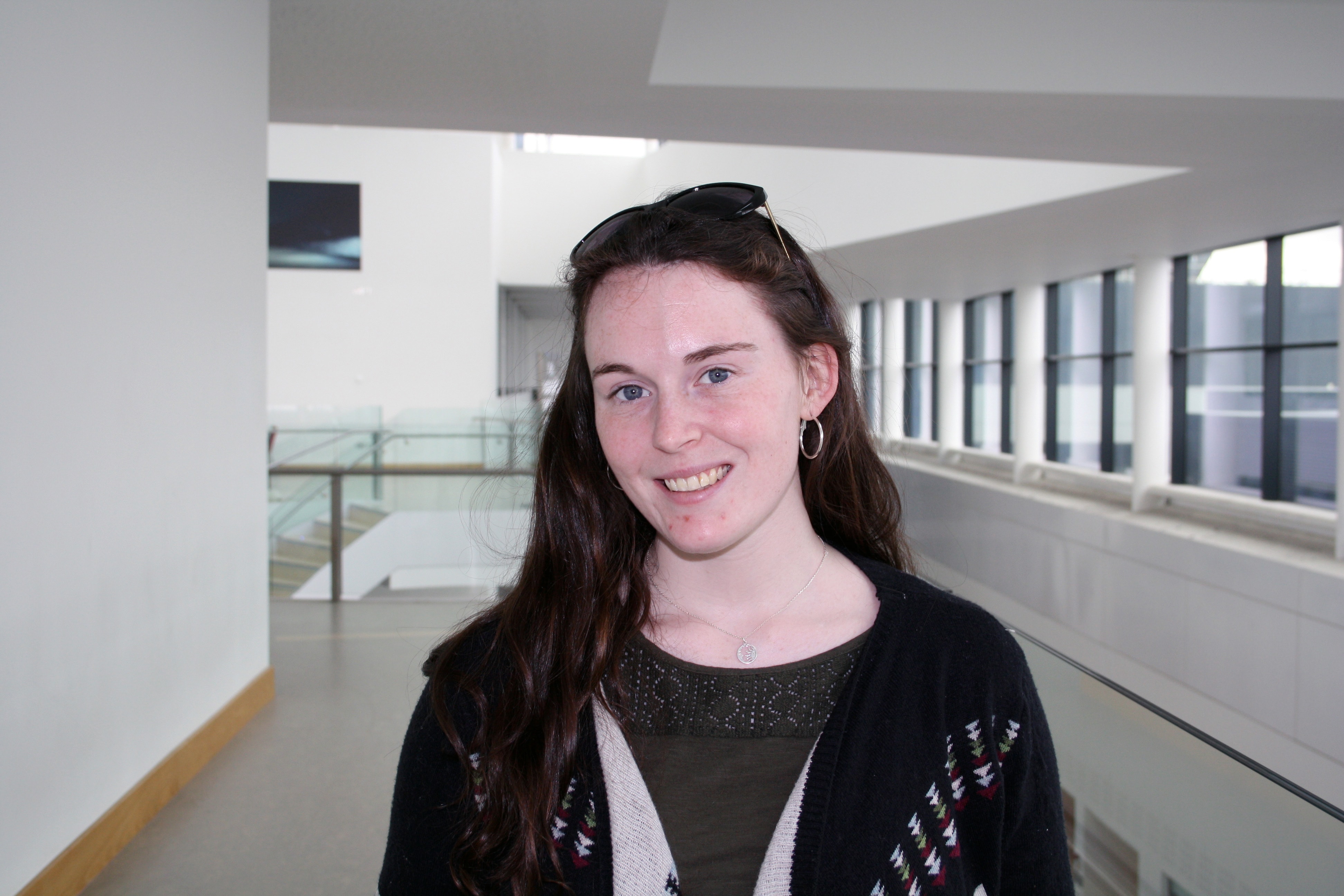Skip to content
Course Information
BSc (Hons) (NFQ Level 8)
Full Time – Undergraduate Studies
CAO Code: DN200
CAO Points Range 2019: 521
Length of Course: 4 Years
Average Intake: 400
Leaving Certificate:
- O2/H6 in Mathematics
- O2/H6 in a laboratory science (Applied Mathematics, Computer Science or Geography may be used instead of a laboratory science subject) and
- O6/H7 in English, Irish and two other recognised subjects
Click below for equivalent entry requirements information for:
Why is this course for me?
Two major problems are facing industrialised society. How do we maintain our standards of living without, firstly, using non-renewable resources as sources of energy and as raw materials for manufacturing industries and, secondly, compromising our local and global environment?
Chemistry with Environmental & Sustainable Chemistry will be central to solving these problems. This discipline, which draws from all branches of chemistry, will enable us to produce the materials and energy we use through ways that minimise the impact on the environment. Furthermore, it will be crucial in developing a variety of resources (solar power, biofuel synthesis, fuel cells, etc.) for use in renewable energy generation. The degree is suitable for students who have an interest in the use of chemistry in tackling these urgent problems.
Career & Graduate Study Opportunities
Apart from the disciplines that are available to graduates with a BSc in Chemistry, graduates in Chemistry with Environmental & Sustainable Chemistry will be particularly suited to employment in the environmental and emerging energy industries, including:
- Commercial environmental analysis
- Alternative energy industry
- Environmental Protection Agency
- ESB
- Bord Gáis
Graduates can also pursue a range of MSc or PhD opportunities in Ireland or abroad.
This is a sample pathway for a degree in Chemistry with Environmental & Sustainable Chemistry.
First Year
- Chemistry
- Mathematics
- Biology
- Optional Science modules
- Elective module
Second Year
- Chemistry, Environmental Chemistry
(with Geology modules discussing climate change)
- + 1 other Science subject
- Elective modules
Third Year
- Physical, Inorganic and Organic Chemistry with optional modules in Geology and Ecology
Fourth Year
- Environmental & Sustainable Chemistry (includes a research project in an aspect of Environmental & Sustainable Chemistry)
- Options will include Green Technologies/Chemistry in Energy Generation.
- Optional Industry Internship module.
All Science courses are full time, with many student timetables running from 9.00am to 5.00pm or later. Depending on the subject choices, a weekly timetable can include lectures, practicals and tutorials.
Assessment varies with each module but may comprise continuous assessment of practicals, written exams and online learning activities.
For detailed information on subject content click here
Students may apply to spend time studying at the following universities:
- University of Lund, Sweden
- University of Virginia, USA
- McGill University, Canada
“I believe a knowledge in Chemistry with Environmental & Sustainable Chemistry is very applicable in industry as legislation is being introduced that holds industries accountable for the waste they produce. This degree investigates how Chemistry can be used to tackle issues such
as global warming, acid rain, water pollution and ozone layer depletion. During my final year, I had the opportunity to carry out research with Dr Tony Keene’s research group. This allowed me to hone the techniques I learned in the lab throughout my first three years, as well as giving me a flavour of what postgraduate research involves. Following graduation, I plan to continue my study of Environmental Chemistry and eventually, I would like to work within an industrial laboratory to implement the principles of green chemistry.”
Eimear Madden Student
Course Information
BSc (Hons) (NFQ Level 8)
Full Time – Undergraduate Studies
CAO Code: DN200
CAO Points Range 2019: 521
Length of Course: 4 Years
Average Intake: 400
Leaving Certificate:
- O2/H6 in Mathematics
- O2/H6 in a laboratory science (Applied Mathematics, Computer Science or Geography may be used instead of a laboratory science subject) and
- O6/H7 in English, Irish and two other recognised subjects
Click below for equivalent entry requirements information for:
Why is this course for me?
Biophysical Chemistry combines the study of chemistry with the molecular principles of the functioning of life and their applications in modern technologies, from the design of a new generation of smart medicines to green manufacturing. The best chemical technologies of our world are utilised in biological systems, where thousands of chemical transformations take place in a well-controlled, environmentally friendly manner.
These transformations occur in biological cells, which represent sophisticated chemical manufacturing plants filled with a broad range of nano devices. Students graduating with this degree will acquire knowledge of advanced chemistry, and of molecular principles of organisation and functioning of living matter. They will also acquire skills in the applications of these principles in biomedical, biotechnological, pharmaceutical, food and other related industries.
Career & Graduate Study Opportunities
The interdisciplinary aspect of this degree and the acquired combination of theoretical and practical skills provide broad opportunities for employment in the area of advanced chemical and biomolecular technologies, including:
- Complex bio-molecular formulations
- Bio-nanotechnology
- Forensic science
- Bioprocessing
- Bioengineering
Biophysical Chemistry graduates will be able to find employment in biotechnological, chemical, pharmaceutical, biomedical, food, personal care and other industries, as well as academic research worldwide. Graduates can also pursue a range of MSc or PhD opportunities in Ireland or abroad.
This is a sample pathway for a degree in Chemistry with Biophysical Chemistry. Topics include: physical, organic and inorganic chemistry; molecular architecture of living matter; self-assembly and functioning of biomolecules; molecular principles of storing and utilisation of genetic information; bio-catalysis and enzymes; modern technologies of supramolecular design; and modern analytical techniques
First Year
- Chemistry
- Mathematics
- Biology
- Elective module
Second Year
- Chemistry with Biophysical Chemistry
- + 1 Other Subject
- Elective modules
Third Year
- Biophysical Chemistry
- Chemistry
- Chemical Biology & Medicinal Chemistry
- Electives (includes Erasmus opportunities)
Fourth Year
- Biophysical Chemistry (Research Project)
- Biophysical Chemistry
- Chemistry
- Nanotechnology
All Science courses are full time, with many student timetables running from 9.00am to 5.00pm or later. Depending on the subject choices, a weekly timetable can include lectures, practicals and tutorials.
Assessment varies with each module but may comprise continuous assessment of practicals, written exams and online learning activities.
For detailed information on subject content click here
“I had studied Chemistry and Biology in school, so when I first started college, I knew that I liked Science but wasn’t sure what I’d like to major in. I loved Chemistry and ended up choosing Chemistry with Biophysical Chemistry as it was a new degree that I felt might give me some additional skills. In the summer after third year, I did a summer internship in Dr Vitaly Buckin’s lab in UCD, which I found really interesting as well as very helpful in preparing me for the final year research project. This, as well as my thesis research in my final year, led me to realise that I’d like to pursue further research in a PhD.”
Rian Lynch Graduate
Course Information
BSc (Hons) (NFQ Level 8)
Full Time – Undergraduate Studies
CAO Code: DN200
CAO Points Range 2019: 521
Length of Course: 4 Years
Average Intake: 400
Leaving Certificate:
- O2/H6 in Mathematics
- O2/H6 in a laboratory science (Applied Mathematics, Computer Science or Geography may be used instead of a laboratory science subject) and
- O6/H7 in English, Irish and two other recognised subjects
Click below for equivalent entry requirements information for:
Why is this course for me?
Zoology is often thought of in terms of treks into the wild to study rare and endangered species. However, this is only one facet of this fascinating subject. Modern zoology deals with all aspects of animals, from genetics and cell biology to ecology and animal behaviour. The Zoology degree at UCD provides modules in a wide range of disciplines, including marine, terrestrial and freshwater biology, evolutionary biology, animal behaviour, palaeontology, ecology, pest control, population genetics, developmental biology, and animal physiology and cell biology.
Career & Graduate Study Opportunities
Because of the nature and breadth of the subject, Zoology graduates are employed in most of the industries and state organisations that employ biologists. These include the National Parks and Wildlife Services, National Museum, Marine Institute, semi-state bodies such as the Environmental Protection Agency, ESB, BIM and Inland Fisheries Ireland, conservation bodies, aquaculture, universities, secondary schools, environmental consultancies and several areas of biotechnology.
Graduate opportunities are also available for students to pursue MSc or PhD programmes. Taught MSc programmes at UCD include Applied Science (Environmental Science) and World Heritage Management.
This is a sample pathway for a degree in Zoology. Topics include animal behaviour, animal development, systems ecology and cell biology.
First Year
- Biology
- Chemistry
- Mathematics
- Optional Science modules
- Elective modules
Second Year
- Zoology
- + 2 Other Science Subjects
- Elective modules
Third Year
Fourth Year
- Zoology (includes a research project where students work alongside researchers in areas as diverse as animal genetics, evolution, freshwater biology or conservation and biodiversity.)
All Science courses are full time, with many student timetables running from 9.00am to 5.00pm or later. Depending on the subject choices, a weekly timetable can include lectures, practicals and tutorials.
Assessment varies with each module but may comprise continuous assessment of practicals, written exams and online learning activities.
For detailed information on subject content click here
“From the moment I walked into UCD, I knew I made the right choice to go back to education, having spent six years travelling in Europe, working with horses as a groom and a rider. When I saw Zoology on the UCD website, it was like love at first sight. A field trip in Spain in third year included learning about the marine diversity present on the rocky shore and what insects and other organisms might lurk in the terrestrial environment of the maquis shrubland. My final year dissertation was on Caribbean long spined sea urchins in Honduras. UCD has shaped me profoundly, awakening an interest in marine biology I never knew I had. Zoology offers a multitude of paths; you just have to find the one(s?) that will lead you home.”
Sanni Hintikka Graduate
Course Information
BSc (Hons) (NFQ Level 8)
Full Time – Undergraduate Studies
CAO Code: DN200
CAO Points Range 2019: 521
Length of Course: 4 Years
Average Intake: 400
Leaving Certificate:
- O2/H6 in Mathematics
- O2/H6 in a laboratory science (Applied Mathematics, Computer Science or Geography may be used instead of a laboratory science subject) and
- O6/H7 in English, Irish and two other recognised subjects
Click below for equivalent entry requirements information for:
Why is this course for me?
Plant Biology is the scientific study of plants, fungi and algae. Plants are vital for supporting and maintaining the atmospheric and environmental conditions required for all life on earth. They are the mainstay of human and animal diets, while also providing pharmaceuticals, timber, paper and clothing.
Plants are being exploited as sources of renewable energy and biofuels, and make an important contribution to measures aimed at reducing the effects of climate change. A key to the further development of plants for practical or economic use is an improved understanding of metabolic and developmental processes and their interactions with environmental factors.
Career & Graduate Study Opportunities
Plant Biology graduates have obtained positions as:
- Plant and environmental scientists
- Pollution biologists
- Molecular geneticists and cell biologists
- Agronomists, horticulturalists, foresters or park rangers
- Environmental consultants
- Wildlife, conservation, biodiversity or heritage officers
Graduates are also eligible to pursue MSc programmes in UCD in World Heritage Management and Plant Biology and Biotechnology, in addition to PhD programmes both in Ireland and abroad.
This is a sample pathway for a degree in Plant Biology. Topics include plant biotechnology, applied plant biology, marine botany, genetics and systems ecology.
First Year
- Biology
- Chemistry
- Mathematics
- Optional Science modules
- Elective modules
Second Year
- Plant Biology
- + 2 Other Science Subjects
- Elective modules
Third Year
- Plant Biology
- Elective modules
Fourth Year
- Plant Biology (includes a research project.)
All Science courses are full time, with many student timetables running from 9.00am to 5.00pm or later. Depending on the subject choices, a weekly timetable can include lectures, practicals and tutorials.
Assessment varies with each module but may comprise continuous assessment of practicals, written exams and online learning activities.
For detailed information on subject content click here
“Placing DN200 Science at the top of my CAO was an easy choice as I could explore all subject areas before making an informed decision on my degree. To me, no area holds greater merit for study than plant science. Its implications infiltrate all aspects of modern society from global food security to phytopharmaceuticals. I am currently Vice-Auditor of the UCD Biological Society. Being involved in a society has allowed me to meet other people from various stages and degrees in UCD as well as encounter some incredible scientists. Last year, Nobel Prize laureate Sir Paul Nurse came to UCD to receive our George Sigerson Award for Inspiring Aspiring Scientists. The UCD O’Brien Centre for Science is home to unparalleled plant science labs and teaching facilities including the Bloom gold medal winning UCD Evolution Garden.”
Caroline Dowling Student
Course Information
BSc (Hons) (NFQ Level 8)
Full Time – Undergraduate Studies
CAO Code: DN200
CAO Points Range 2019: 521
Length of Course: 4 Years
Average Intake: 400
Leaving Certificate:
- O2/H6 in Mathematics
- O2/H6 in a laboratory science (Applied Mathematics, Computer Science or Geography may be used instead of a laboratory science subject) and
- O6/H7 in English, Irish and two other recognised subjects
Click below for equivalent entry requirements information for:
Why is this course for me?
Physiology is an area of biology related to how the human body works. Physiologists are interested in how the cells and organs of the body operate and how their incredible array of processes co-operate to enable our bodies to function under normal and challenging circumstances. Physiologists are, therefore, at the forefront of medical research and the search for a better understanding of disease processes.
At UCD, Physiology students acquire a thorough understanding of the organs of the body, such as the heart, lungs, kidneys, and how they function, interact and respond to the internal and external environment.
Career & Graduate Study Opportunities
Physiology graduates go on to establish careers in the following areas:
- Biomedical research in the university system or other government-run operations
- Pharmaceutical industry-based research and development
- Clinical trials
- Pharmaceutical industry sales
Physiology graduates regularly gain places on graduate-entry Medicine and other allied healthcare degree courses. UCD provides opportunities for graduate physiological research at the Master’s or PhD level. Research into basic physiological mechanisms takes place but the research focus is on translational research, i.e. the research that enhances our understanding of human disease that leads to advances in the improvement of human health.
This is a sample pathway for a degree in Physiology. Topics include neurophysiology, metabolic biochemistry, membrane biology, respiratory physiology and cardiovascular physiology.
First Year
- Biology
- Chemistry
- Physics
- Mathematics
- Optional Science modules
- Elective modules
Second Year
- Physiology
- + 2 Other Science Subjects
- Elective modules
Third Year
- Physiology
- Elective modules
Fourth Year
- Physiology (includes a research project in a laboratory setting)
All Science courses are full time, with many student timetables running from 9.00am to 5.00pm or later. Depending on the subject choices, a weekly timetable can include lectures, practicals and tutorials.
Assessment varies with each module but may comprise continuous assessment of practicals, written exams and online learning activities.
For detailed information on subject content click here
Physiology students have spent time studying at the following universities:
- San Jose State University, USA
- University of Queensland, Australia
“Having come into UCD with no other certainty bar loving biology, DN200 Science really was a great option. I am now in my final year of Physiology and am so glad I chose this subject for my degree. I believe the level of academic teaching is outstanding and I love learning how various systems of the body works, including the heart, lungs and kidneys. My final year project is based on the inflammatory responses of spinal cord injury. UCD has opened a whirlwind of opportunities for me. I am a Student Ambassador and Student Leader, I have acted as a Peer Mentor, been on student society committees and have spent two summers volunteering in Tanzania with UCDVO. I’m really glad I chose UCD and couldn’t imagine myself anywhere else!”
Celine Camon Student
Please disable your adblock and script blockers to view this page

